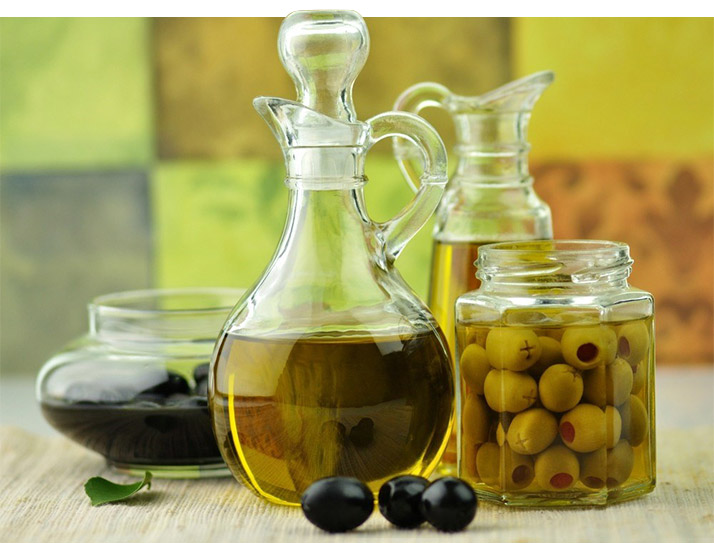The refined cooking oil is the biggest fraud and cheating with the health of people….this dirty game is being played since 1980….As it is shown in the advertisements on television that it is good for heart. You will be shocked to learn that refined cooking oil causes heart disease….specially coronary heart disease.
If you recall your memories before 1980 the mustard oil, ground nut oil, Til oil were our traditional cooking oil were used in our kitchen and the heart health of people were good.As there were induction of refined cooking oil the heart disease spread very fast and today the heart disease is in worst phase .
When you’re cooking at a high heat, you want to use oils that are stable and don’t oxidize or go rancid easily.
When oils undergo oxidation, they react with oxygen to form free radicals and harmful compounds that you definitely don’t want to be consuming.
The most important factor in determining an oil’s resistance to oxidation and rancidification, both at high and low heat, is the relative degree of saturation of the fatty acids in it.. Thus its a need of hour to be very careful while using the cooking oils. However, picking the correct cooking oil can spare you from heart infections, cholesterol blockages, stoutness and processing issues.
Some of the Best Cooking Oils For Health!
Coconut Oil
When it comes to high heat cooking, coconut oil is your best choice.
Over 90% of the fatty acids in it are saturated, which makes it very resistant to heat.
This oil is semi-solid at room temperature and it can last for months and years without going rancid. Coconut oil also has powerful health benefits. It is particularly rich in a fatty acid called Lauric Acid, which can improve cholesterol and help kill bacteria and other pathogens.
Olive Oil
Olive oil is well known for its heart healthy effects and is believed to be a key reason for the health benefits of the mediterranean diet.
It can raise HDL (the good) cholesterol and lower the amount of oxidized LDL cholesterol circulating in your bloodstream .
Palm Oil
Palm oil is derived from the fruit of oil palms.
It consists mostly of saturated and monounsaturated fats, with small amounts of polyunsaturates.
This makes palm oil a good choice for cooking.
Red Palm Oil (the unrefined variety) is best. It is also rich in Vitamins E, Coenzyme Q10 and other nutrients.
Avocado Oil
The composition of avocado oil is similar to olive oil. It is primarily monounsaturated, with some saturated and polyunsaturated mixed in.
It can be used for many of the same purposes as olive oil. You can cook with it.
Canola Oil
Canola oil is derived from rapeseeds, but the euric acid (a toxic, bitter substance) has been removed from it.
The fatty acid breakdown of canola oil is actually fairly good, with most of the fatty acids monounsaturated, then containing Omega-6 and Omega-3 in a 2:1 ratio, which is perfect.
Peanut Oil
There are numerous nut oils available, such as peanut, macadamia, and hazel nut and they certainly do taste wonderful, however, because they are full of polyunsaturated fats, they should not be used for cooking.
You can use them as a part of a recipe, but don’t use these oils for frying.
Mustard oil
Mustard oil is a great oil substitute for traditional cooking oil options as it is often used as a stimulant to help digestion and circulation. Due to its antibacterial properties, this oil can help protect the skin. Mustard oil also fights germs and virus, great to prevent cold, coughs and skin problems.
Industrial Seed and Vegetable Oils
Industrial seed and vegetable oils are highly processed, refined products that are way too rich in Omega-6 fatty acids.
Not only should you not cook with them, you should probably avoid them altogether.
These oils have been wrongly considered “heart-healthy” in advertisements.
How to Take Care of Your Cooking Oils
To make sure that your fats and oils don’t go rancid, it is important to keep a few things in mind.
Don’t buy large batches at a time. Buy smaller ones, that way you will most likely use them before they get the chance to damage.
When it comes to unsaturated fats like olive, palm, avocado oil and some others, it is important to keep them in an environment where they are less likely to oxidize and go rancid.
The main drivers behind oxidative damage of cooking oils are heat, oxygen and light.
Therefore, keep them in a cool, dry, dark place and make sure to screw the lid on as soon as you’re done using them.
.


Recent Comments